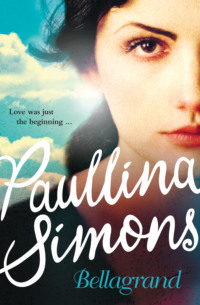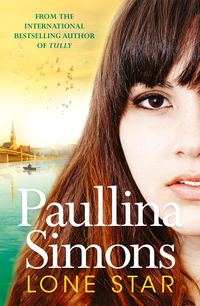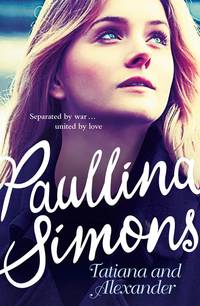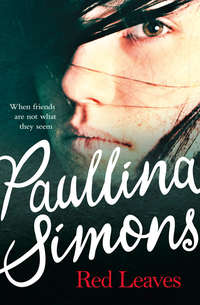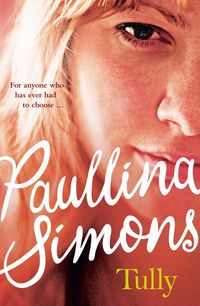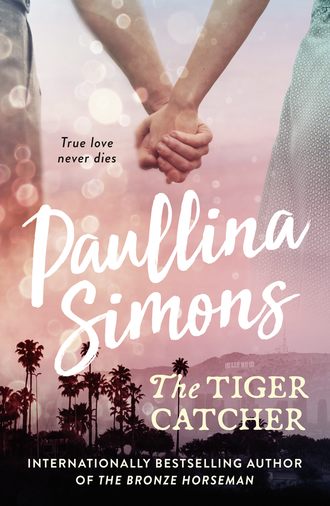
Полная версия
The Tiger Catcher
“What do you do, Julian?” she asked as she started on the sausage rolls. “What do you teach?”
“Nothing, why do you keep saying that?”
She twinkled. “You left your house this morning dressed for school.”
Julian was going to tell her that he did indeed teach a story writing night class at the community college, but now wouldn’t give her the satisfaction. They were off for the summer anyway, so technically he wasn’t a teacher.
“Teaching is a noble profession,” she went on, the smile playing on her face.
“I know,” he said. “I come from a family of educators. I’m just not one of them.”
“So what do you do?”
“A bunch of things. I run a blog, I write a daily newsletter …”
“Ooh, a blog about what?” she said. “Teaching?”
Now Julian really didn’t want to tell her.
“Come on, what’s your blog called?” With buttery fingers, she took out her phone. “I’ll look it up.”
He wished he had named his blog, “Deep Thoughts from a Viking Lord.” Instead he was stuck with the truth. “From the Desk of Mr. Know-it-All.”
“I knew it! You tell other people how to live!” She laughed. “You have that look about you.”
“What look is that?”
“The fake-quiet-but-really-I-know-everything look.” She was delighted. “Is it like an advice column?” Grinning, she leaned forward. “Do people drown you in their suffering?”
Sometimes yes. “Mostly they write to ask how to get rid of birds that fly into their houses.”
“Not for advice on love, are you sure?”
He tried to keep a poker face. “It’s not that kind of blog. I’m not Mr. Lonely Hearts.”
“No?”
How could one maintain a poker face against such onslaught?
A few years ago, he started distilling his website into a daily newsletter. He picked a handful of questions, tied them up with a theme, and offered a handful of life hacks and pithy sayings to go along with them. The soul is a bird inside your house, Nathaniel West wrote. Better one live bird in a jungle than two stuffed birds in a library.
The young woman clapped. “I can’t wait to bookmark you,” she said. In her voice, even a word like bookmark sounded erotic. “Do you have advice for frustrated actresses?”
He wanted to impress her with his own inappropriateness by telling her to never go topless unless it was essential to the story. “Dress to the camera,” is what he said.
Flicking up the collar of her see-through blouse, she crossed and uncrossed her bare legs. “Done. Bring me my pasties and a fedora. What else?”
Did she just say pasties? Mon Dieu.
“Once,” Josephine said, “a casting director told me not to try so hard to be someone else. Just be yourself, she told me, and I’m like, you idiot. I’m auditioning for Young Nabby Adams on John Adams, isn’t the whole point to be someone else?”
Julian laughed.
“I get a ton of advice,” she went on, “especially after I don’t get the part. Don’t be so desperate, Josephine. Relax, Josephine. Have fun! Drop your shoulder! I’m like, where were you before my audition? If that’s all I had to do, I’d be winning a Tony by now.”
“How long have you been at it?”
“How old am I? Oh yeah—that long. I prefer stage to film,” she announced, like it was a badge of honor. “It’s more real. And I’m all about making it real.”
“So why do you come to L.A. then?” Not that Julian was complaining. But L.A. was a make-believe town.
“Why? For the same reason Bonnie and Clyde robbed banks.”
He laughed. “Because that’s where the money is?”
“Yes! It’s not acting I love, per se. I just love the stage. I like the instant feedback. I like it when they laugh. I like it when they cry.” She twirled a loose strand of her hair. “Do you like plays?” She batted her lashes. “Besides The Invention of Love.”
“Yes, that’s one of my favorites. Oscar Wilde is pretty good, too. I once played Ernest in high school.”
“I was Cecily and Gwendolen!” Josephine exclaimed with a thrill, as if she and Julian had played opposite each other. Grabbing his hands from across the table, she affected a stellar British accent. “Ernest, we may never be married. I fear we never shall. But though I may marry someone else, and marry often, nothing can alter my eternal devotion to you.”
The name Gwendolen made Julian stop smiling. Casting aside his enchantment, he politely drew his hands from her and palmed his coffee.
Josephine, puzzled at his sudden wane, pivoted and refocused. “Sorry, you were in the middle of telling me what you did for a living, and I interrupted you with myself. Typical actress, right? Me, me, me. You run a blog, you said? Sounds like a hobby, like it’s even less lucrative than acting. And trust me, there’s nothing less lucrative than acting.”
“I thought actors cared nothing for money, they just wanted to be believed?” At the Cherry Lane, she had made a believer out of him.
“That’s first.” She smiled grandly. “But being booked and blessed wouldn’t be the worst thing that happened to me.”
“Well, there’s money in blogging,” Julian said. “I get paid from Google ads, plus I run a pledge drive twice a year. Whoever sends me a few bucks gets my daily newsletter.”
“How many people pledge?”
“Maybe thirty thousand. And two million unique visitors to the website. That helps raise our ad rates.”
She became less casual. “Two million visitors? I may be in the wrong business. Who is our in that sentence? You and the famous Ashton?”
“Yes, the famous Ashton.” Who was probably calling in an APB on Julian at that very moment.
“Is he the other Mr. Lonely Hearts?”
Why did everything out of her mouth sound like she was playing with him? Playing with him like seducing him, not toying with him, though she may have also been toying with him. “He can’t be the other Lonely Heart,” Julian said, “because I myself am not one. But yes, we’re partners in everything. Enough about me.” No red-blooded male talked about himself while across from him sat no less than Helen of Troy. “What have you been in? Anything I can watch tonight?”
“I was in a national Colgate commercial a year ago. You could watch that.” She flashed her teeth at him. “Recognize me now?”
She did look incongruously familiar. Maintaining a calm exterior took tremendous effort.
She told him she was also Mary in The Testament of Mary. “You didn’t see that? Yeah, nobody did. It was well reviewed and was even nominated for a Tony but ran only three weeks. Go figure, right? Only on Broadway can you have both great success and abject failure in the same show.” She chuckled. “To increase Mary’s ticket sales, the producer told the director to shoot a commercial with a shot of the audience hooting it up, having a great time, and the director said, ‘You gotta be careful, Harry, you don’t want your actual audience jumping up in the middle of your show yelling, what the fuck were they laughing at?’” Josephine laughed herself, her face flushed and carefree.
Her flushed, carefree face was quickly becoming Julian’s favorite thing in the universe.
They’d been in the café for over an hour. Julian was still clutching his cold cup of coffee. Suddenly she sprung from her seat. “Oh, no, it’s almost four! How do you swallow time like that? Let’s go, quick!”
“I swallow time?” Slowly he rose from the table.
The traffic on Gower was of course at a standstill. “Can we make it?”
“No, Josephine, we can’t.”
“Oh, come now, Mr. No-at-All. I told you, I go on at 4:30.”
“Will never happen. We’re four miles away in heavy traffic.”
“Mr. Pessimist,” she said. “What did Bette Davis reply to Johnny Carson when he asked her how to get to Hollywood?”
“She said ‘Take Fountain,’” said Julian.
“Very good! So you do know some stuff. Follow Bette’s advice, Julian. Take Fountain.” She flapped open the book she had bought. “Look what you did, you kept me yapping so long, I forgot to prepare a monologue. I don’t know a single line for Beatrice.”
“Start with, In the midway of this, our mortal life, I found me in a gloomy wood …”
“And then?”
“That’s all I know,” Mr. Know-it-All said.
“What am I supposed to do with that?”
“Perhaps you can go off book on another line or two from your years in the theatre?”
“From Beatrice? From Divine Comedy?”
“So audition for the narrator,” Julian said. “You’d make a great Dante. You were a very good Housman.”
“Please don’t stare at me, drive,” she said. “Is this jalopy a car or a horse buggy?”
“The Volvo is one of the best, safest cars on the road,” Julian said, offended for his oft-maligned automobile.
“I’m thrilled you’re safe,” she said. “Can you be safe and step on it?”
“We’re at a red light.”
“I’ve never seen so many red lights in my life,” Josephine said. “I think you’re willing them to be red. Like you want me to be late.”
“Why would I want that?” Face straight. Voice even.
“That’s what I’m trying to figure out.” Almost as an aside, she added, “You know, if I get this gig, I’ll have to stay in L.A. for the summer.”
Julian’s jalopy grew wings and in it he flew to Griffith Park, screeching into a parking spot seventeen minutes later. “Ashton is right, miracles really do abound,” he said. “I’ve never made it here in less than a half-hour.”
“Really, hmm,” she said. “How often do you do this, Speedy Gonzalez, take strange stranded women to the Greek?” Flinging open the door, she motioned for him. “Come in with me. You can be my good luck charm.”
The theatre was nearly empty except for a few dozen people sitting in the front rows. Built into the cliffs of the untamed Santa Monica Mountains, the open amphitheatre was a little disquieting with its spooky silence and vacant red seats, the shrubby eucalyptus rising all around.
At the side gate, a girl with a clipboard stood in Phone Pose—head down like a horse at the water—texting. Josephine gave her name—and then Julian’s! He pulled at her sleeve. The girl didn’t see his name on the call sheet. “Must be an oversight,” Josephine said. They began to argue. “Clearly someone has made a mistake,” Josephine said. “Go get your supervisor immediately.”
Thirty seconds later, they were taking their seats in side orchestra, him with a number and a sticker. “That’s a great hack I learned from the theatre life, Julian,” Josephine said. “Today, I give it to you for free. Never yell down to get what you want. Always yell up. You’re welcome.”
“Why did you do that?” he whispered.
“Shh. She wouldn’t have let you in otherwise. You saw how she wallowed in her petty power. You want to perform, don’t you?”
“I most certainly do not.”
Josephine gave his forearm a good-natured pinch. “You said you were Ernest in high school. You must know something from Wilde by heart. I did.”
“Am I you?”
“What you are is number 50. You have ten minutes. I suggest you start practicing.”
“Josephine, I’m not reading.”
She stopped listening. They sat next to each other, their arms touching, her bare leg pressed against his khaki trousers. She was mouthing something, while his mind stayed a stubborn blank. Anxiously he stared at the stage. He was nervous for her, not for himself. He knew that despite her shenanigans he wasn’t going up there, but he really wanted her to get the part. A large sweaty man with messy hair recited Dante from the first canto. After four lines he was stopped. A bird of a woman followed. A pair of identical sisters got seven lines in before they were shooed off the stage.
“If you can get through your monologue,” Julian said quietly, after watching the others, “you’ll be all right. Here’s a hack for you. You’re rehearsing, not auditioning. Act like you already have the part.”
“But I don’t have the part. How the heck do I do that?”
“You act,” he said.
Her number was called. “Number 49. Josephine Collins.”
“Wish me luck,” she whispered, throwing Julian her bag and jumping up.
“You don’t need it. You have the part.” Julian watched her let down her long hair and become someone else on the stage, someone who projected without a microphone into the 6000-seat amphitheatre, someone who didn’t speak in a breathy femme fatale voice, someone with a British accent. She stood tall, eyes up, chin up, her body in dramatic pose, and shouted up into the empty seats.
What power is it, which mounts my love so high,
That makes me see, and cannot feed mine eye?
The mightiest space in fortune nature brings
To join like likes and kiss like native things—
The casting crank in the front row stopped her. “Miss Collins, what is that you are reading for us?”
“Shakespeare, sir, from All’s Well that Ends—”
“This is an audition for Paradise in the Park. You’re supposed to be reading for either Beatrice or Dante.”
“Of course. I was showcasing my abilities. How about this”—she lowered her voice to a deep bass, looked up, beat her breast—“through me you pass through the city of woe, through me you pass into eternal pain—”
“Thank you—next. Number 50. Julian Cruz. Mr. Cruz, have you prepared some Dante for us?”
4
Gift of the Magi
BACK AT HIS CAR, THEY LINGERED. SHE CALLED HIM chicken for telling the director he had nothing prepared, and he agreed, not wanting to take her home. She tied up her hair and put away her fake glasses. She looked like herself again, simple and perfect. The ends of her sheer blouse swayed in the breeze.
“I wish it wasn’t so late in the day,” she said, glancing at the hills around the theatre. “We could take a walk up there. I could show you something.”
“Show me anyway,” he said. “Wait—up where?”
“What, you agreed too fast? No, no backsies. I’ll have to show you another day.”
“Okay—when?”
She laughed. They leaned against his gray Volvo, drinking from the same water bottle. Julian’s thoughts were racing. “What’s your favorite movie?”
“Dunno. Why?”
“Come on. What is it? Titanic?”
“Ugh, no, I don’t care for all that dying in icy water, don’t care for it one bit,” she said, peering at him through slitted eyes. “Apocalypse Now.”
Julian did a double take. “Apocalypse Now is your favorite movie?”
She stayed poker-faced. “Sure. Why is that surprising?”
“No reason.” He fake-coughed. “I’ve never seen it.”
Now it was her turn to do a double take. “You’ve never seen Apocalypse Now?”
“No. Why is that surprising?”
“Because it’s such a guy movie. We should watch it sometime.”
“Okay—when?”
She laughed. They lingered a bit longer.
“Listen—I gotta head back,” she said.
“I thought you were hungry,” Julian blurted. “What do you feel like eating? We can go anywhere. My treat. I may not know about Vietnam movies, but I know my L.A. food. Are you in the mood for a taco? Factor’s on Pico? A pizza? Marie Callender’s coconut pie?”
Her mouth twisted as she struggled with some internal thing. “Don’t think I’m nuts,” Josephine finally said. “But I feel like breakfast for dinner. Hash browns?”
“I know just the place. Best hash browns in L.A.”
“Am I dressed for it?”
“For IHOP? Absolutely.” Julian opened the passenger door.
“You know what they say,” she said, getting in. “When the guy opens the door for you, either the girl is new, or the car is new.”
“Ha,” Julian said. The girl was new.

“So who do you stay with when you’re in L.A.?” he asked. They were sitting across from each other, their second plate of hash browns half eaten between them on the blue table.
“My friend Z.”
Did Julian dare ask if Z was a Zoe or a Zachary? He dared. “Who’s Z?”
“My best friend Zakiyyah.”
“Ah.” An exhale. “Is she in the business, too?”
“She used to be.” Josephine drummed her fork against the table. IHOP on Sunset was empty, because what kind of fool came to IHOP at night.
“What’s her actual name?”
“Zakiyyah Job. Job as in Bible, not employment. And Zakiyyah like pariah.”
“You two have incredible stage names. You’re lucky.”
“You should talk, Julian Cruz,” she said. “Anyway, Z is lucky. Jury’s still out on me. Seven years ago, we moved out west, paradise is here, the whole thing. We set up house, started going to auditions. I thought we’d be all right—me being white and her being black and all—but with colorblind casting, the agents were bending over themselves to hire her, not me. Sometimes she was better. Sometimes I was better. It was hard to tell, because she always got the part, and it got between us.” She sighed. “One of us had to choose a different life if we were to stay friends. So we flipped for it.”
“I should think,” Julian said, “that first you’d want to flip on whether or not you wanted to stay friends.”
“Nah. We’re from the same hood. Z is like my sister.”
Julian knew something about flipping for it. When they first met Gwen and Riley, he and Ashton flipped for Gwen. Because tall, gorgeous, California girl-next-door Riley with glossy blonde hair and glowing skin looked too high-end for mortal man, even Ashton, who was no slouch himself in the looks department. Ashton said that no one who was that put-together on a Wednesday night happy hour at a local dive in Santa Monica would ever be easy on a man’s life. She looked and moved like a movie star. And Gwen looked like the movie star’s best friend. So they flipped for Gwen. Ashton lost. That was shocking. Because Ashton never lost anything.
“I was pretty confident,” Josephine continued, “because I never lose a coin toss or even a game of rock, paper, scissors. But Z won. I said, let’s play best of five. She won again. I said, best of seven. She won that, too.”
“Was this major life decision fueled by tequila by any chance?”
“A whole bottle full.”
“Thought so.”
“She won every time. Finally I said, okay, one last time, winner take all, sudden death. We fortified ourselves with the rest of the tequila. And guess what happened?”
“You won?”
“Why,” she said with a half-smile full of whimsy, “because you believe in the Willy Wonka philosophy on lotteries and life in general?”
Julian laughed. “I do, actually. You stand a better chance if you want it more.”
Josephine nodded in deep agreement. “And no one wanted it more than me. Yet I still lost. Sometimes, no matter how much you want it, you still lose.” She didn’t look upset, just philosophical. “After I threw up and calmed down, Z told me I could have it. She would become something else.”
Julian was impressed. After he won, he did not give dibs on Gwen to Ashton. “Why would she do that?”
“She said because ever since I was old enough to recite ‘Three Blind Mice,’ I stood on every table,” Josephine said. “I invented a stage everywhere I went.” She fell silent, poking the remains of the cold potatoes. “Of course, now Z is doing fantastic, and I’m still waiting for my big break.” Zakiyyah was an art therapist for the California public school system. She traveled to districts around the state and trained elementary-school art teachers how to apply their craft to the Special Ed curriculum to help troubled kids who could not be reached by conventional therapy methods. Julian thought Zakiyyah’s newfound career was an ocean away from the stage. One job: me, me, me. The other: you, you, you. How did one make a quantum leap like that?
“Why do I plow on, you ask?”
“I didn’t ask. I know why,” Julian said. “Because the theatre is all there is.” His throat tightened.
“Yes!” Josephine exclaimed, her bright eyes gleaming. “It’s not so much a career as a sickness. You gotta love it, otherwise there’s no good reason for being obsessed with something that offers rewards to so few.”
Julian agreed. “That’s good advice for many things, not just the theatre,” he said. “But you’ll get there.” He wanted to tell her that he had never in his life felt what he felt when she stood in front of him on the darkened stage at the Cherry Lane. Oh where is it, where has it all gone, my past, when I was young. “Besides, if it’s what you do, and you can do it, then you do it.” Julian set his jaw. “Because sometimes, you can’t do it. And then, there’s nothing worse.”
Josephine mined his face. “You know something about that?”
“Little bit. The irony is,” Julian said with a thin smile, “that after all that drinking and coin tossing, you didn’t stay in L.A. and your friend did.”
“That’s true. We came here together, and she, who said she couldn’t stand the constant sun and the fake life chose to stay, and I, who loved both, returned home instead.”
“Why didn’t you stay?”
“I told you, I couldn’t live here,” Josephine said. “Though of course, I didn’t know that when we flipped for it.”
“That’s the time shift paradox.” Julian was trying to find something to say to make her feel better. She looked as if she needed it. “The hindsight paradox. You can’t act on what you do not know and cannot know.”
“No, I’m fibbing, I knew it,” the young beauty said, her doleful voice echoing in the empty restaurant. “I felt it in my soul. I thought the heaviness inside me was because of tension between me and Z. It was only after she went back to school and I kept going to auditions and yet the pervasive sense of doom wouldn’t lift that I realized it wasn’t me and Z that was wrong. It was me and L.A. that was wrong.” Breezily she waved her hand around, la-di-da. “So six years ago I returned to the absurd delights of the New York stage life.” She smiled. “Every few months I fly out here, try out for a few things so I can keep my SAG membership. I visit my friend and get away from the theatre to see if I can live without it. And I can’t. I fly out to L.A.,” Josephine said, “so I can know who I am.”
5
Normandie Avenue
NORMANDIE AVENUE WHERE ZAKIYYAH LIVED WAS POORLY lit. The residential through street lined with tall scraggly palms and working-class homes was wide but sketchy.
“It’s all she can afford,” Josephine said.
“I said nothing.” A moment later: “Is it safe?”
“Well, it’s not as safe as your Volvo, but what is?”
In a minute she was going to leave his Volvo.
“Z and I haven’t had much trouble,” she went on. “If you don’t count that drive-by shooting last time I was here.”
“And who’d want to count that?”
“It happened in front of Z’s house. Cops blocked the road for hours. Z was at work, but I had a callback and couldn’t leave until they cleared the scene. Story of my life.”
“Why doesn’t she move?”
“Because I’m back in New York. When we were both paying rent, it was easier.”
“Why doesn’t she get another roommate?”
“Who’d want to live here, have you seen the neighborhood?” Josephine shrugged. “On the plus side, it’s cheap. It’s next to the freeway. Rosie the landlady is nice. She makes us enchiladas because Z works late and is often too tired to cook. Though she’s a really good cook.”
“What about you? Do you cook?”
“Oh, sure. I cook,” she said. “I make shame toast.”



